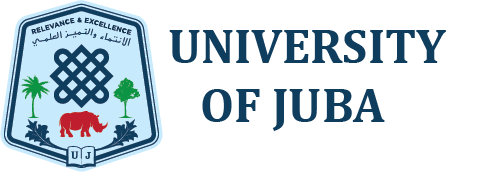- HOME
- ABOUT US
- ACADEMICS
- Program type
- Schools
- School of Law
- School of Nursing
- School of Medicine
- School of Pharmacy
- School of Education
- School of Engineering
- School of Public Health
- School of Public Service
- School of Arts & Humanities
- School of Veterinary Medicine
- School of Applied & Industrial sciences
- Computer Science & Information Technology
- Schools
- Art, Music & Drama
- Medical Laboratory
- Tourism & Hospitality
- Petroleum & Minerals
- School of Mathematics
- Business & Management
- Social & Economic Studies
- School of Arts & Humanities
- Community Studies & Rural Development
- Natural Resources & Environmental Studies
- Architecture, Land Mgt, Urban & Regional Planning
- Centers, Colleges & Institutes
- NTLI
- ODEL Centre
- French Institute
- Graduate College
- Kuajok Community College
- Open Education College (OEC)
- Centre for Languages & Translation
- STEM and Vocational Center
- Institute of Water Studies (IWS)
- Law Development Centre (LDC)
- Institute of Peace, Development & Security Studies
- Human Resource Development & Continuing Education
- ADMISSIONS
- UNIVERSITY LIFE
- LET’S CONNECT
- RESEARCH
